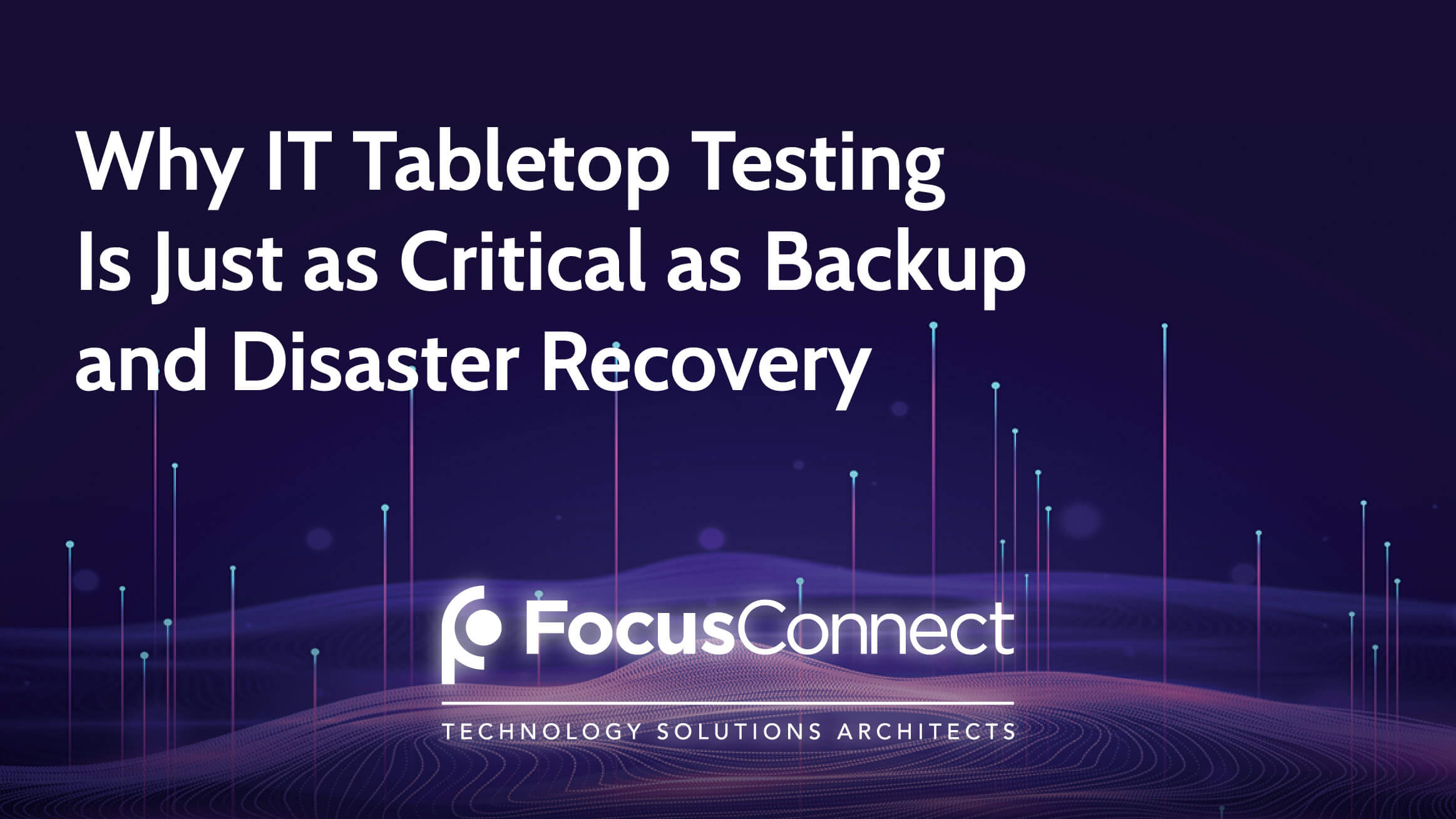In today’s digital-first business environment, backup and disaster recovery (BDR) solutions are rightly seen as essential. They protect data, ensure business continuity, and help organizations recover from cyberattacks, system failures, or natural disasters. But there’s another equally critical component of a resilient IT strategy that often gets overlooked: IT tabletop testing.
What Is IT Tabletop Testing?
Tabletop testing is a proactive, low-cost, high-impact exercise where IT teams simulate real-world incidents in a controlled environment. These simulations help organizations evaluate their incident response plans, communication strategies, and resource readiness without the pressure of an actual crisis. They also provide a vital training opportunity for both new and experienced staff.
Unlike technical recovery drills, tabletop tests focus on decision-making, coordination, and communication—key elements that determine how effectively a business can respond to disruptions.
Why Tabletop Testing Is Essential
1. Identifies Gaps Before They Become Failures
Tabletop testing allows teams to uncover weaknesses in their cybersecurity strategy, data protection protocols, and IT compliance frameworks. Whether it’s a missing contact in the escalation list or unclear roles during a ransomware attack, these gaps can be addressed before they cause real damage.
2. Enhances Team Preparedness and Decision-Making
By simulating incidents like phishing attacks, network breaches, or cloud outages, tabletop exercises train staff to think critically and act decisively. This is especially valuable for onboarding new employees and refreshing experienced team members.
3. Improves Cross-Departmental Coordination
IT doesn’t operate in a vacuum. Tabletop testing brings together stakeholders from legal, HR, communications, and executive leadership to ensure everyone understands their role in a crisis. This builds trust and streamlines collaboration.
4. Validates Cybersecurity Investments
Organizations invest heavily in managed cybersecurity services, firewall management, and SIEM platforms. Tabletop testing helps validate whether these tools are being used effectively and whether staff know how to leverage them during an incident.
5. Supports Compliance and Audit Readiness
Regulatory frameworks like HIPAA, PCI DSS, and ISO 27001 require documented incident response procedures. Tabletop testing provides the evidence needed to demonstrate compliance and readiness during audits.
6. Strengthens Cloud and Remote Security Posture
As businesses migrate to the cloud and support remote workforces, tabletop testing ensures that cloud backup and disaster recovery plans are aligned with secure remote access and zero trust architecture.
Tabletop Testing vs. Backup and Disaster Recovery: A Strategic Duo
While BDR solutions focus on restoring systems and data, tabletop testing ensures that the people and processes behind those systems are ready to act. Together, they form a comprehensive resilience strategy that protects both infrastructure and operations.
Tabletop Testing Strengthens Your IT Preparedness
Incorporating regular tabletop testing into your IT strategy is not just a best practice—it’s a necessity. It empowers teams, validates investments, ensures compliance, and ultimately strengthens your organization’s ability to withstand and recover from any disruption.
If you’re looking to enhance your IT resilience, consider partnering with a managed IT services provider that offers both disaster recovery planning and tabletop testing facilitation.
FocusConnect is a Denver-based managed IT services provider committed to collaboration, innovation, and leadership. We specialize in delivering secure, scalable solutions that align with today’s evolving industry standards—never yesterday’s. Our expert team empowers organizations to enhance cybersecurity, streamline operations, and reduce costs through tailored strategies designed to grow with your business. Partner with FocusConnect to future-proof your IT infrastructure and drive sustainable success.


